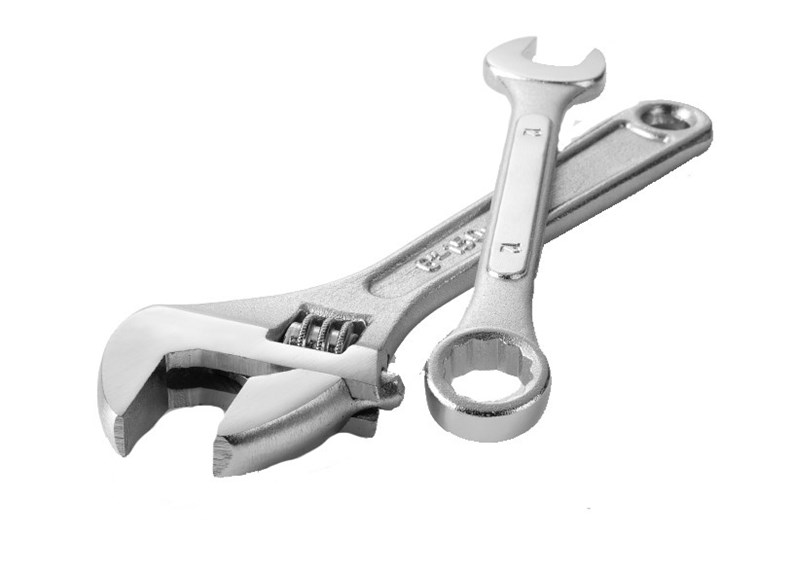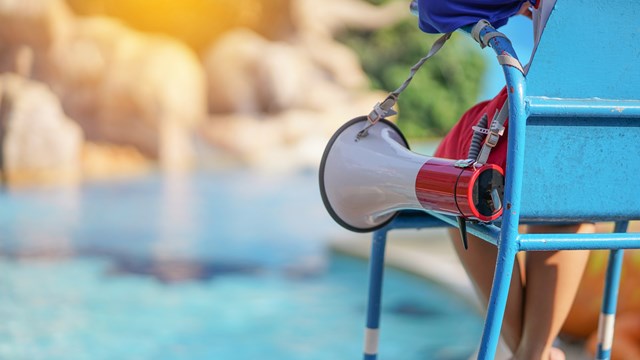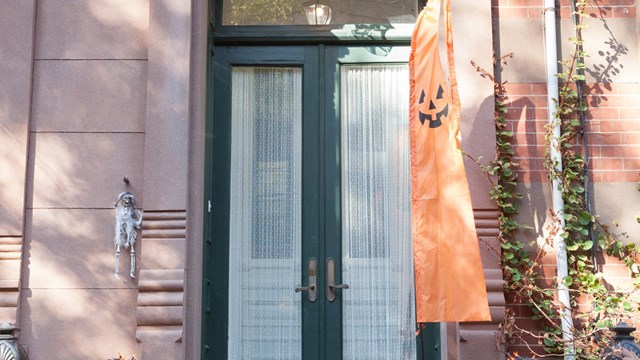When it comes to amenities in homeowner associations, few are as desirable and enjoyable as swimming pools. Having a semi-private place where people can swim or relax on a deck in the sun—without the hassle of actually maintaining the pool—is a big draw for condo owners and co-op shareholders.
"A pool facility is something that's attractive to most purchasers," says Gary Wilkin of Wilkin Management Group in Mahwah. "It adds something of an expense to the operation, but I think that's offset by the fact that it's available to the residents who live there, and it's also a great place for residents to socialize in a nice environment."
For a property manager and board, keeping a pool in shape is a year-round job. It'd be great if all your pool needed were some chlorine in the summer and a pool cover in the winter, but it's more complicated than that. It's important to have a comprehensive plan for keeping your pool and its components in working order.
Good Pools Last a Lifetime
It's a rare occurrence where a pool needs to be replaced. According to James Jannarone of Candlewood Management Services, a pool management and service company in Howell, if your pool has a vinyl liner (very rare for an association pool), the liner would need to be replaced every 15 to 18 years or so. But it's almost a certainty that your association's pool is made of concrete, and that is something that should last a long time.
"The basic concrete shell is good forever," Jannarone says. "What needs to be done periodically is replacement of component parts such as filters, pump motors, and tile coping. Occasionally there are leaks that have to be repaired. But even in a worst-case scenario where there's a leak below the pool, that can be easily repaired without replacing the whole pool."
Part of the standard maintenance of pools (in the Northeast anyway) is for them to be emptied every year prior to the new season. That's when leaks are repaired, but as Jannarone says, cracks to the concrete shell are pretty rare. More common are leaks in the lines that bring water between either the pool or the filter.
Proper care of a pool should keep it in good working order without the need for major work.
"As long as the maintenance is done, you're in pretty good shape," says Russell Lane, an owner of Sparkling Pool Service in Hightstown. "We've certainly done jobs where we've ripped out all of the filtration, we've replaced all the lines, the deck, all the fixtures, and resurfaced the pool. All you're doing is using the existing shell and putting everything else new on it. That's usually for pools that haven't been maintained well or haven't been used in a couple of years."
Lane adds that concrete pools need to get resurfaced every eight years or so. This entails chipping out hollow spots, applying a bond coat, then re-plastering the pool. "That's basically putting a thin coast of plaster on the pool to give it a brand-new surface," Lane says. Some tell-tale signs that it's time to get this done are when the pool surface gets very rough, or when you start to see gunite (a concrete mixture that is sprayed from a special gun to form the walls of some in-ground pools) coming through the pool surface.
Filters and Heaters
There are three types of filters that a pool may use: sand, diatomaceous earth and cartridge. Jannarone says sand filters—which use super-fine sand to filter microbes, algae, and other pollutants out of pool water—are the most common type. Sand filters should be inspected every year or two, and depending on the condition of the sand itself, either all the sand or just the sand on the surface will need to be replaced every three to five years. "Other than that, the filter should really last almost forever," Jannarone says.
Diatomaceous earth, or "DE" filters operate on the same basic principle as sand filters, but instead of using sand as the filtering medium, DE filters use a cartridge of diatomaceous earth—which is composed of the skeletal remains of microscopic, single-celled organisms.
There is also the option of cartridge filters. Cartridge filters consist of a tank that houses three or four cylindrical filtering elements made of superfine polyester fabric, or some other very fine material that provides the filtering surface. The material catches and holds impurities as water passes through the filter. Cartridge filters fall somewhere between sand filters and DE filters in terms of cost, says Jannarone, and should be cleaned annually and replaced entirely every two to three years.
According to Jannarone, each type of filter has its own advantages. Diatomaceous earth filters out small particles the other types don't—but sand filters are the least expensive and easiest to backwash, and cartridges take up less room and need very little maintenance.
If your pool has a heater, that also needs to be maintained.
"We usually recommend a spring cleanup where we maintain the units, clean them out from all the debris from the fall and winter, and make sure they're operating properly," Lane says.
As with many components of a pool, keeping your water chemistry at the right levels will help you get the most out of a heater.
"The thing that causes heaters to go is if your water chemistry is not kept properly," Jannarone says. "If it's too acidic or corrosive, you shorten the life expectancy of the heater. Normally, a heater should [last] seven to 10 years before the exchanger needs to be replaced." He adds that the cost of heaters vary depending on how powerful they are, which is dictated by the size of the pool.
Winterizing
It may seem strange, but the way your pool is prepared before the time of year when no one is using it is one of the most important steps in keeping your pool and its components in good working condition.
"The most damaging thing is if it hasn't been winterized properly," Jannarone says. "If the lines are not blown out and filled with anti-freeze, there's a possibility that the water in the lines over the winter could freeze and crack the lines and hoses."
Proper winterization for your pool depends on your filter, but Jannarone says there are a few basic steps to cover when preparing a pool for the winter months. First, the water should be lowered below the tile line so that that the snow and rain that accumulates during the winter won't raise the water to the tile. If water does get that high, it can freeze and crack the tile.
Next is the chemical treatment of the water. The idea is to keep algae growth to a minimum. "You can't avoid having some algae," Jannarone says, "but you want to minimize it."
The other important step is to blow out the lines between the pool and filter. "With a compressor, you blow air into the lines and put in non-toxic anti-freeze," Jannarone says.
The final steps to winterizing are draining the filter tanks, covering the pool and making sure fresh-water lines are blown out and filled with anti-freeze.
Preseason Care
There are two types of concrete pool surfaces: painted and plastered. If your pool is painted, it should be painted every two to three years with a rubber-based paint. When the pool is drained and acid washed (washing plastered pool surfaces takes a little more effort because they have "grooves" where algae settles) is the point where you should determine if your pool needs painting.
Jannarone says it's important to realize that while a concrete pool is drained, its hydrostatic plugs, which are at the bottom of the pool, need to be removed.
"In this area [of New Jersey], almost all pools have a degree of ground water underneath them—particularly in the spring," Jannarone says. As a result, a pool can shift if it isn't drained.
"Sometimes the whether isn't conducive to painting the pool right away," Jannarone says. "So you have a day or two before weather is good enough to paint, so if it's left empty, the hydrostatic plugs should be pulled."
Finally, the proper chemical balance needs to be achieved. Jannarone says a lot of people think adding chemicals is all about chlorine. However, it's more important to set the overall water balance correctly. The calcium in the water, as well as un-dissolved and dissolved solids, have to be neutralized. "You build up the total alkalinity of the water and you get the PH right, and then you add the chlorine," Jannarone says.
Failing to establish the right level can result in the water being too acidic, which can wear the paint and plaster surface faster. Also, heaters work best when the chemical levels are right. During the summer while the pool is in use, the water temperature and chemical levels need to be correct and the pool needs to be cleaned regularly.
Scheduling your appointment with your pool maintenance contractor is also important. Lane says his company was already busy working on pools in February.
"To actually do the work only takes a few days," Lane says. "The problem is, anybody who is worth anything is really busy this time of year. We're doing renovation work already. We're ripping out and replacing decks, we're doing tiling and coping, resurfacing. We're already working towards Memorial Day."
Lane recommends scheduling your work for the spring as the previous summer season is ending. "They need to be proactive," he says. "We try to give our customers a heads-up as to what they'll need one year, three years down the line, and try to make sure everybody is on the same page. People will call in February and March and say, 'What do you think?' And we're busy. We generally fit them in, but it's a busy time of year."
Safety and Insurance
"Pools are usually handled through a pool maintenance or management company that provides lifeguards, opens and closes the pool and handles the maintenance on the pool itself," says Wilkin. "Our job is to oversee that and work with the pool management company to make sure all the rules and regulations are being adhered to.
Pools in homeowner associations are considered public pools, and all public pools require a certified pool operator (CPO). Most public pools also require a lifeguard on duty while the pool is open, though smaller associations may qualify for a waver; contact your local health inspector to find out if your pool is eligible for a waiver.
According to Jannarone, lifeguards are licensed by the Red Cross and have to take a 22-hour class and pass a test, which focuses on lifesaving techniques and being preventative in regards to safety. Lifeguards not only have to respond to potential emergencies, but also need to enforce rules, such as no head-first diving, or keeping floatation devices out of the pool area if that is indeed your rule.
When it comes to insurance, there isn't a specific insurance for pools, instead, Jannarone says the pool will be covered by your overall coverage. It will, of course, cost more to include a pool in that policy, and factors such as the size of the pool can impact the cost further. Your pool operator should also be insured.
If a board member or association member has a concern, whom do they contact—their property manager, or the pool management company?
"It works both ways," says Wilkin. "Some [properties have] committees set up or a board member oversees the pool operation. Since [the pool management company] is at a pool more often than we are, a lot of times a board member or committee member will deal directly with the pool company as opposed to going through us going to the pool company. It cuts down on the timeframe and miscommunication."
"If you have a pool management company, you usually save money on your association's liability insurance because the pool company assumes first risk for the pool," Jannarone says.
Budgeting and Planning
According to Wilkin, the age of your HOA's pool has a lot to do with how much it costs to repair and maintain. "With a relatively new pool, you're pretty much budgeting for just the operation of the pool," he says. "As time goes on, you might be dealing with components like filters, possibly decking, recoating the surface of the pool. We don't see too many liner pools, but if it's a liner pool, that's an every 10- to 15-year occurrence. Usually every 15 years you're doing something significant to a pool," he says.
As a pool gets older, Wilkin feels that associations should definitely have a reserve fund set aside to cover the cost of repairs and improvements.
"As time goes on—especially after the complex has been built and you're eight or 10 years down the road," says Wilkin, "you'll need to have funds available in your reserve account to resurface the pool, possibly [repair or replace] the pool decking, and maintain the mechanical equipment. Items like filters and heaters usually don't have long life spans—they've got 15 years at best."
With a competent, reliable pool maintenance and management company and a conscientious board and property manager, however, your HOA's pool will be an asset for decades to come. As Wilkin says, "I think it's almost always a nice amenity to have when people are looking to purchase townhomes or condominiums."
Anthony Stoeckert is a freelance writer and a frequent contributor to The New Jersey Cooperator.







Comments
Leave a Comment